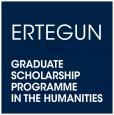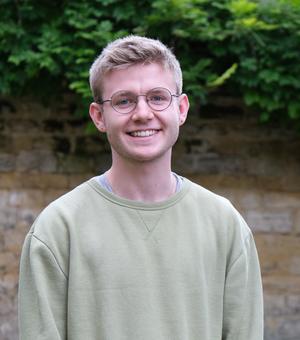Anton Blackburn (UK)
I graduated with first-class honours (B.A. Music) from Jesus College, Oxford, and was awarded the Denis Stevens Prize in Music. Whilst studying for finals, I published a version of my second dissertation in the peer-reviewed journal Nota Bene. During my studies, I co-founded and co-ran a reading group on Critical Theory, Biopolitics, and Xenofeminism which was open to students from any discipline and level. In short, I am committed to research from multiple angles, seeking to share my work in writing and through scholarly communities. Underpinning all of my work is a commitment to radical, left-wing politics and, therewith, a rejection of all positivist, fascist, and sophistic positions. I partake in academia not to debate with or tolerate oppressive and discriminatory beliefs, but rather to displace them entirely and produce rigorous and critical research that betters the social and material conditions of the most oppressed members of our society.
I completed my Master’s in Musicology at Oxford as an Ertegun Scholar, where my existing interests were deepened and broadened in every meaningful sense. I specialise in anthropological and sociological theories of culture, queer and trans* theory, and popular music studies. My transdisciplinary orientations have recently coalesced around the ethnographic study of drag culture and ‘PC Music’, an artistic collective known for generating the ‘hyperpop’ genre. As a social and scholarly environment, Ertegun House inundates its inhabitants with the potential for transdisciplinary exchange, and I hope the programme continues to bring disciplines together in a world that tries so hard to keep realms of knowledge strictly apart.
During the M.St., I produced multiple research articles on topics such as: an intersectional analysis of drag lip-sync performance, probing the conceptual (and material) implications of ‘dragging’ music and its polyvalent meanings; a theorisation of ‘trans* aurality’ as a mode of listening that is both critical (queer-sociological) and material (trans-anthropological), in response to recent debates in Transgender Studies Quarterly and trans* musicology; finally, for my dissertation, I produced an ethnography of virtual festivals hosted by PC Music following its various actors around the internet in order to genealogically situate the collective and generate new concepts out of the social mappings afforded by digital anthropology. Two of these projects are under review with Twentieth-Century Music and Contemporary Music Review, both of which are field-shaping peer-reviewed journals in music and sound studies. It is only thanks to the support of the Ertegun community and the heart-warming generosity of Mica Ertegun that I was able to be so productive and successful as a graduate student.
Life After Ertegun House
Next academic year, I will be commencing my doctoral studies in the Unities States, where I will continue my training as an Ethnomusicologist. Provisionally, I will continue to combine social scientific and philosophical methods during fieldwork in Japan’s urban LGBTQIA+ nightlife scenes. This project will hopefully take forward my existing research in popular music and drag culture but in a new and globally influential locale. In this sense, my doctoral research will be a pivotal moment in my trajectory when I shift from ‘ethnography’ to ‘anthropology’, as I will have the opportunity to comparatively consider drag within a planetary context, with the appropriate critical distance that serves the communities I will work with and not just my own academic career.
My other research interests in music range from sound studies and sound art (particularly sound walking and the fledgling field of sonic urbanism) to 18th-century French theatre and opera (namely the singing career of the drag performer Pierre Jélyotte within the long Querelle des Anciens et des Modernes). Outside of music, I am actively researching current anthropological debates, particularly the ontological turn and epistemological renegotiations offered by ‘perspectivism’ and ‘multinaturalism’. In addition to this, I am working on a co-authored paper for the journal Anthropological Theory, offering a critique of ‘Anthropological Realism’ and related anti-intellectual commitments to ‘common sense’ and ‘reality’ in interpretive social scientific research. I hope to continue bringing music and anthropology together beyond the subdiscipline of ‘ethnomusicology’ throughout my doctoral studies, especially as I look for my fieldwork to bring marginalised perspectives and ways of living/performing to bear on post-Enlightenment secularities.
Committed to social activism and community service, I am happy to speak with and help prepare any prospective Ertegun applicants who are from socioeconomically disadvantaged backgrounds. I would particularly like to encourage working-class applicants who identify as trans* or queer and/or come from Black and minority backgrounds to reach out for support.




